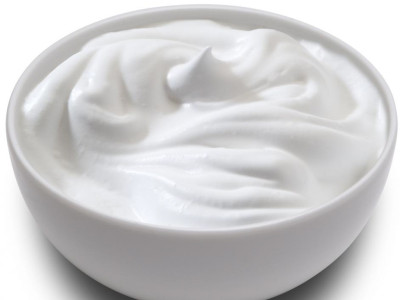Fermented dairy products have long been considered to benefit digestive health and yogurt has even been associated with lower risk of obesity and cardiometabolic risk in both children and adults.
Yogurt can be a fantastic addition to a healthy and well-balanced diet, as long as you choose the right kind, and don’t suffer from an allergy, intolerance or condition that might be worsened by consuming dairy.
Yogurt is rich in nutrients, calcium and protein and may boost your health when consumed regularly. It may help reduce the risk of some diseases, while also benefiting digestive health and weight control.
1. Yogurt is the perfect immune system booster. The lactic acid in yogurt have important effects in preventing cancer, infections, gastrointestinal diseases and asthma.
2. The lactic acid bacteria in yogurt kills the malicious bacteria in our bowel, preventing diarrhea and helps to create a healthy inner bowel environment.
3. As yogurt is a rich source of conjugated linoleic acid, it is a protective food against colon and breast cancers. Furthermore, conjugated linoleic acid which is one of the most important compounds for boosting the immune system is more useful when it is taken from yogurt instead of pills.

4. Some types of probiotics found in yogurt, such as Bifidobacteria and Lactobacillus, have been shown to lessen the uncomfortable symptoms of irritable bowel syndrome (IBS), which is a common disorder that affects the colon (1, 2, 3, 4.)
5. Probiotics have been shown to reduce inflammation, which is linked to several health conditions ranging from viral infections to gut disorders (5, 6, 7, 8).
6. Research shows that consuming at least three servings of dairy foods, such as yogurt, on a daily basis may help preserve bone mass and strength (9)
7. Some studies have suggested that four weeks of regularly eating probiotic yoghurt is good for the brain, while another large study credited the healthy bacteria in yoghurt for lowering risk of heart attack and stroke among people who ate just two servings a week.

To ensure your yogurt contains effective probiotics, look for one that contains live, active cultures, which should be listed on the label.
Caveat:
While yoghurt is beneficial to our health, stick to sugar-free ones with no added food additives and artificial flavorings. Avoid any yogurt that claims to taste like a dessert, especially one that says it is fat-free but tastes like ice-cream or strawberry pudding. The reason these yogurts taste ‘good’ is that they have been packed full of sugars, and/or sweeteners and artificial flavorings.
Be wary of yogurts purporting to be flavoured with ‘real fruit. This often comes from concentrated fruit sources which still represent a significant amount of sugar. Watch out for the other names for sugar such as dextrose, maltose, and barley malt, to name a few.
